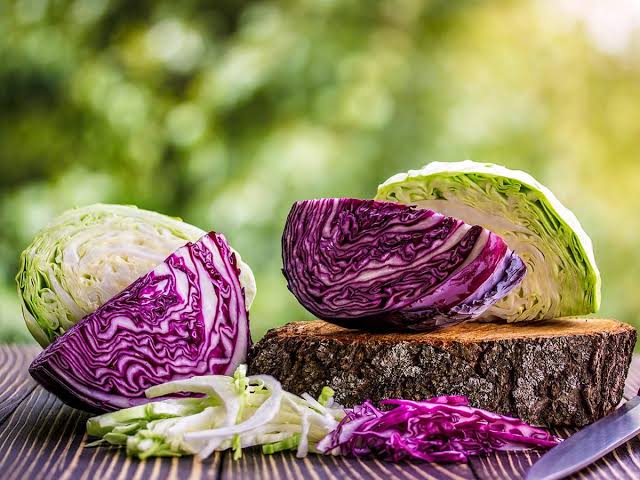You may love it or detest it, but cabbage absolutely loves you.
Cabbage is a versatile vegetable with a high nutritional value that gets neglected quite often. This vegetable has been grown for thousands of years all over the world and can be found in a variety of dishes such as sauerkraut, kimchi, and coleslaw.
According to The Encyclopedia of Healing Foods, all types of cabbage – purple, green, or white – are high in cancer-fighting phytochemicals known as glucosinolates, with green cabbage having the highest concentration.
The Brassica plant family of which Cabbage is part has recently gained popularity for its health benefits. Consuming more cabbage, therefore, makes sense. But if you need some convincing, here are five reasons why you should include it in your daily diet:
1) It’s packed with nutrients
Despite its low-calorie content, cabbage has an impressive nutrient profile.
In fact, 1 cup (89 g) of raw green cabbage contains 22 calories, 1g of protein, 2g fibre, 56% DV of Vitamin K, 36% DV of Vitamin C, 10% DV of Folate, 6% DV of Manganese, 6% DV of Vitamin B6, 3% DV of Calcium, 3% DV of Potassium, and 3% DV of Magnesium.
Cabbage also has trace amounts of other micronutrients like vitamin A, iron, and riboflavin.
2) It’s cheap and widely available year-round
Because the cabbage family of vegetables is so diverse, it is possible to have fresh cabbage at any time of year.
There are numerous cabbage varieties, including Green, Savoy, red, Napa, bok choy, and Brussels Sprouts (tiny cabbages). It is possible to eat cabbage pretty much all year.
Although most cabbages can be used for any purpose, plant breeders have developed many varieties in a variety of colours and textures. Some are as sweet and mild as lettuce, while others are rock-hard and ideal for shredding or slicing.
They are also very cheap; you can get medium-sized cabbage for as low as N500.
3) It is versatile and last longer when stored
Cabbage can be sliced into soups, foods like rice, spaghetti, noodles, and salads, shredded into coleslaws, stir-fried alone or with other vegetables, fermented, steamed, boiled alone or with foods, fried, roasted, and even grilled.
When stored properly, cabbage can last from 3 weeks to up to 2 months in your refrigerator. It can even last longer in ideal root cellar conditions.
4) It helps improve digestion and reduce inflammation
This crunchy vegetable is high in insoluble fibre, which is a type of carbohydrate that cannot be broken down in the intestines. By adding bulk to the stool and encouraging regular bowel movements, insoluble fibre helps keep the digestive system healthy.
It’s also high in soluble fibre, which has been linked to an increase in the number of beneficial bacteria in the gut. This is because fibre is the primary fuel source for beneficial bacteria such as Bifidobacteria and Lactobacilli.
These bacteria perform critical functions such as immune system protection and the production of essential nutrients such as vitamins K2 and B12. Cabbage is a cruciferous vegetable, which means it contains antioxidants that have been shown to reduce chronic inflammation.
If you want to improve your digestive health, fiber-rich cabbage is a great choice.
5) It is great for weight loss and beautiful skin
Cabbage is great for losing weight! Even better, it is also beneficial to your skin’s health. It is high in fibre and low in fat, with only 33 calories per cup of cooked cabbage. It is also high in antioxidants, which keep your skin toned, healthy, and glowing.
While cabbage alone will not result in weight loss. Instead, combine the vegetable with other healthy foods such as grains, proteins, healthy fats, and high-fiber foods.



